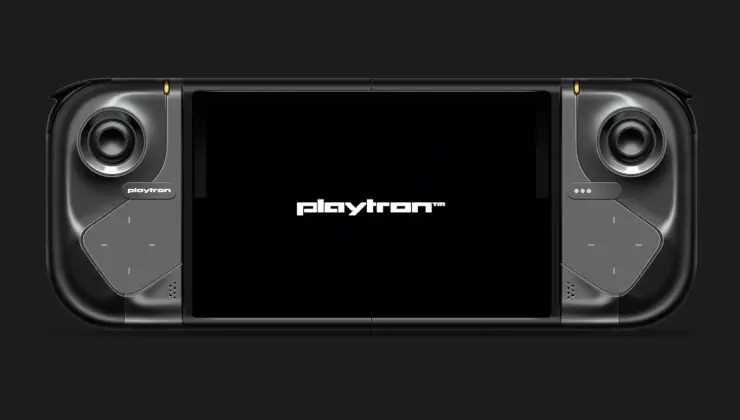To be clear, this is just an alternative Linux OS. The hardware shown in the thumbnail and article is just a mockup meant to represent a potential handheld. Part of their goal is to offer equally good support for all PC game stores (epic etc) vs the “steam first” experience of the deck.
Dedicated builds for the Steam Deck and other handheld PCs are to come later this year.
Some TL;DR from the Verge’s coverage of this:
- Leadership has connections to CyanogenOS and an ex-Playstation CEO
- Ayaneo is looking into releasing a device with this OS at the end of 2024 (free salt grains here)
- A handful of celluar providers are interested in connected hardware running this OS
- No desktop mode
- Beta releasing in the next 60 days
- Target audience is likely casual gamers - those who may consider a Switch instead of a Deck
The following is my response copied from the original post in the Linux Gaming community:
Sounds very interesting, but I can’t shake the feeling that this company is looking to profit from Valve and the OSS community’s contibutions to Linux gaming without contributing much back.
On the plus side, at least the Box86 developer and a couple others they’ve hired from various Linux gaming projects are now getting paid for their contributions 👍. They also managed to get The Witcher 3 running on an ARM device which is pretty cool.
Playtron hasn’t quite decided just how open source it’ll be, though, and how much it will cater to Linux power gamers versus the next hundred million that Playtron hopes to bring into the fold.
Seems likely that Playtron would follow Valve’s apprach where the client application/shell is proprietary IMO, with the rest of the OS remaining open source.
There’ll be no Linux desktop mode.
Hard pass for me, since the deck is also a partial laptop replacement in my case. The article also mentions wanting power users to debug the alpha version of the OS they’ll be releasing in 2 months or so - not too sure how they expect that to happen if they’re not providing a DE besides their Playtron shell.
I’ll be following the progress of their OS though, will be interesting to see if they’ll aim for Valve’s pretty tight hardware integration or whether they’ll keep things on the more generic side like we see with the current Windows handhelds
Edit: Fix quotes
has links to CyanogenOS
Wow that is a name I haven’t thought about in ages
No desktop mode
I guess this is fine if they’re targeting casual gamers? But I feel like by necessity the first people interested aren’t going to be anyone you could call casual. It’s a big loss of functionality in my book, steam deck with desktop mode is awesome
Sounds locked down, and the main people involved have a crypto background. I might give this a miss.
Linux and user base fragmentation, name a more iconic duo. No one is gonna use it anyway.
Linux and user choice? Even if it flops it’s always good to have more people trying out stuff like this!
Touché. Though the fragmentation brings more issues than user choice solves, IMO. I think people should focus on making SteamOS available everywhere instead of everyone making their own Linux handheld gaming distro.
But who am I to talk, around 5 of my projects were started because I couldn’t be bothered to contribute to other projects and instead opted for a rewrite.
Choice of Linux distro has always been very fragmented though, and in my very limited knowledge it doesn’t really seem to be that much of a problem. They all basically do the same thing using the same core technology, so if both this and the Steam Deck are making use of Linux to be the OS and Proton to actually play the games then the rest is just a nice bit of user choice, right?
Of note, Playtron’s CEO is Kirt McMaster, the asshole who destroyed CyanogenMod for profit. Ars Technica’s comment section isn’t holding any punches on how unlikely this is to even become a finished product, much less something actually competitive against Steam Deck
CyanogenMod
Now that’s a name I haven’t heard for a long time. But I still do remember how the entire community continued under the Lineage name as if nothing had happened. As is to be expected when open source project tries to commercialize. Does anyone actually know of a project that has done something similar and not immediately failed?
I saw that he was from CyanogenMod, but I didn’t remember the details of how things fell apart and didn’t realize he was the one responsible.
Bazzite already exists
Options are always good, but yeah until proven otherwise I’m inclined to think Bazzite is better.
Who TF is Playtron?
Rename it playtronOS sounds like a preschool kids toy.
What’s the use case here? Why chose this over SteamOS?
I think they want to be more appealing to hardware vendors. SteamOS has shown that there’s a lot of value in a handheld offering a polished end user experience that windows handhelds aren’t able to match. The goal here is probably to partner with other handheld PCs makers to offer a customized Linux based option that has out of the box support for all of the popular PC games stores.
All they need to do to beat steamos is to release.
So Lutris?
And will this have big picture mode? Because basically Steam is the only one that supports the PC, the Deck interface and also controller first TV.
[Edit]
Read the update, so it’s all some sort of faked announcement.
This is the best summary I could come up with:
Playtron have teased their PlaytronOS, taking aim at the gaming space to compete with SteamOS with a Linux-powered system.
Many others are involved who have developer experience from the likes of Google, Amazon, Red Hat, Meta, Samsung, SEGA and more.
They say it aims to be “compatible with every game store” and to expect “many 3rd party integrations to come”.
And they say to expect “Playtron on Laptops & PCs, TVs, XR and in Car in the coming years”, so they’re certainly aiming high with it.
Their current plan is to launch PlaytronOS for Steam Deck and other handheld gaming PCs “later this year” and that “Playtron 1st hand held PCs coming soon” — so we can expect to see some future handhelds launch with PlaytronOS.
While exciting, they have a huge uphill battle here and will no doubt have to do a lot of convincing when it comes to hardware vendors to actually use it.
The original article contains 348 words, the summary contains 156 words. Saved 55%. I’m a bot and I’m open source!












